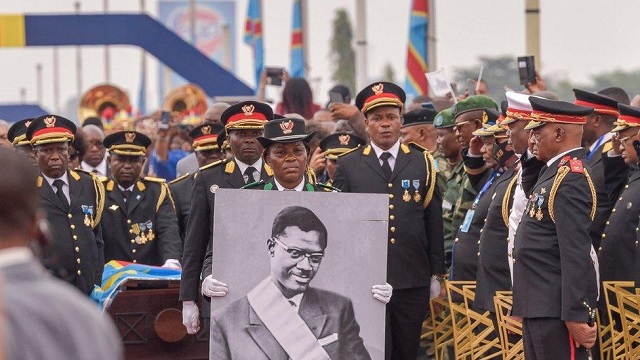
COMMENT | Gertrude Kamya Othieno | The assassination of Patrice Lumumba, the first Prime Minister of the Democratic Republic of Congo, serves as a profound example of how attempts to erase a leader can be met with unexpected resilience rooted in cultural traditions. While Belgium sought to eliminate Lumumba and his vision for a free Congo, they underestimated the significance of his legacy within the African worldview, which views death not as an end but as a transformative passage.
Lumumba’s assassination in January 1961 was a calculated move by colonial powers seeking to maintain control over their former colonies. They aimed to suppress his message of independence and unity, expecting that by eliminating him, they would quash the aspirations of the Congolese people. However, Lumumba’s death only solidified his status as a martyr. This phenomenon is not unique to Congo; it resonates across the African continent, where cultural rituals play a vital role in how societies remember and honour their leaders.
In many African cultures, death is not merely a cessation of life but a transition into another form of existence. The belief in ancestors and the importance of their continued presence in the lives of the living underscores the idea that those who have passed remain influential. For instance, the Buganda ritual of “okwabya olumbe” involves deep-seated cultural practices surrounding funerals and remembrance, highlighting the enduring spirit of the deceased among the living. This perspective ensures that even in death, a leader like Lumumba can continue to inspire and galvanise future generations.
Belgium’s efforts to erase Lumumba’s influence by treating his body with brutality—reportedly cutting it into pieces and dissolving it in acid—were not only acts of physical violence but attempts to sever his ties to the people. Yet, this act only served to amplify his legacy. The manner of his death, laden with violence and humiliation, became a rallying cry for anti-colonial movements across Africa. In contrast to Western practices, where death can signify an end to an individual’s impact, the African ethos transforms death into a source of strength and resilience.
The cultural and spiritual frameworks that permeate African societies serve as powerful tools for resisting oppression. Lumumba’s martyrdom illustrates how the legacy of a leader can transcend the attempts to erase it. His memory lives on in the hearts and minds of those who continue to fight for justice and equity, rooted in the traditions that celebrate their ancestors.
Moreover, the contemporary relevance of Lumumba’s ideals cannot be overstated. As African nations navigate the complexities of governance, corruption, and external influence, his vision for unity and self-determination continues to resonate. The struggle against neocolonialism finds its voice in the memory of leaders like Lumumba, who remain emblematic of the fight for sovereignty and dignity.
In conclusion, the erasure of a leader’s memory may be a tactic employed by those in power, but it often backfires in the face of deeply rooted cultural traditions that honour the dead and their legacies. The resilience of the African spirit, intertwined with the values of community and remembrance, ensures that leaders like Patrice Lumumba do not simply fade away. Instead, they become symbols of hope and empowerment, inspiring future generations to uphold the principles of justice and self-governance. By recognising and honouring the past, Africa can continue to forge a path towards a future that embraces its cultural heritage while striving for progress.
This exploration of Lumumba’s enduring legacy and the cultural resilience of Africa serves as a reminder that the fight for justice is not merely a political struggle but also a deeply spiritual one, grounded in the rich traditions that define the continent’s identity.
*****
 Gertrude Kamya Othieno | Political Sociologist in Social Development (Alumna – London School of Economics/Political Science) | Email – gkothieno@gmail.com
Gertrude Kamya Othieno | Political Sociologist in Social Development (Alumna – London School of Economics/Political Science) | Email – gkothieno@gmail.com
 The Independent Uganda: You get the Truth we Pay the Price
The Independent Uganda: You get the Truth we Pay the Price



